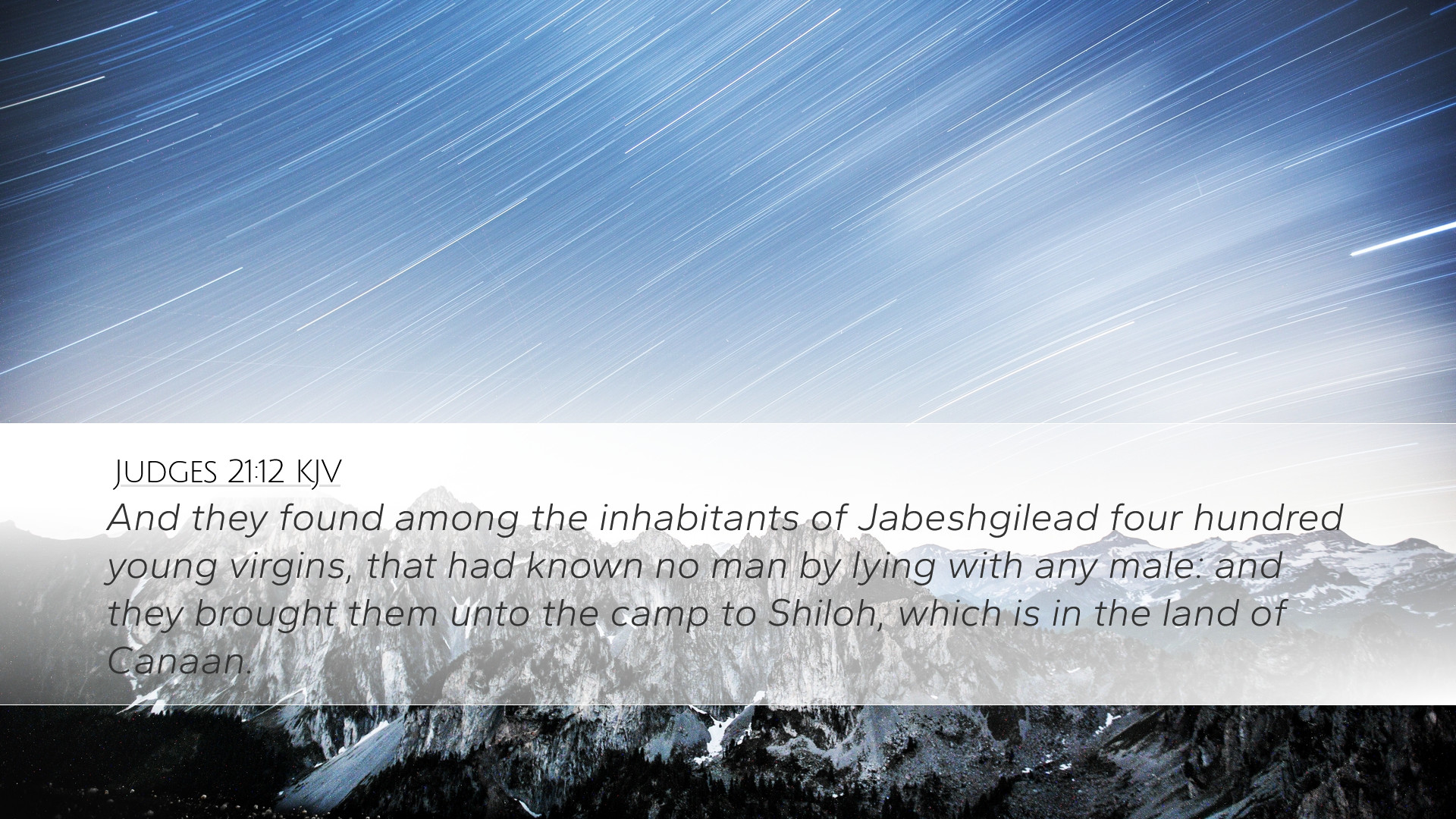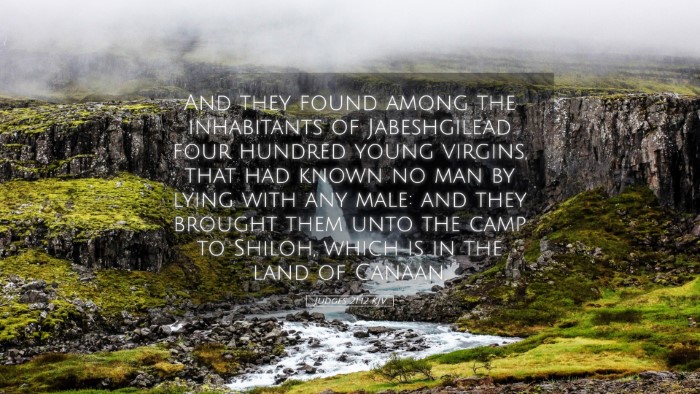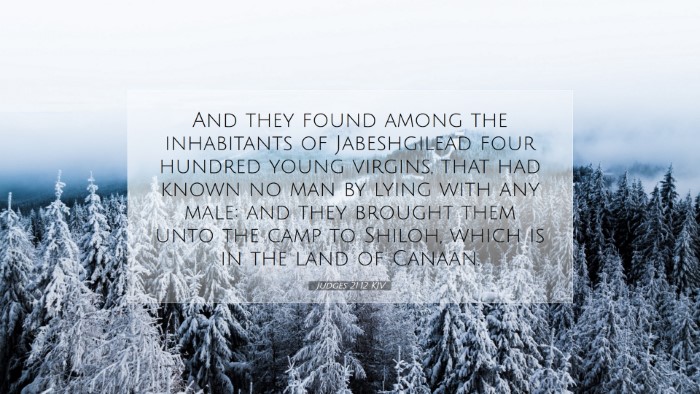Commentary on Judges 21:12
Judges 21:12 states: "And they found among the inhabitants of Jabesh-gilead four hundred young virgins, that had known no man by lying with any male; and they brought them unto the camp to Shiloh, which is in the land of Canaan." This verse occurs at a critical juncture in the narrative, highlighting the desperation of the Israelites to find wives for the remaining Benjamite men after a civil conflict.
Contextual Overview
The Book of Judges depicts a tumultuous time in Israel's history when the nation was without a central monarchy and each tribe acted largely independently. The account of the Benjamites in Judges 20-21 illustrates not only the internal strife among the tribes but also the lengths to which they would go to restore their numbers and maintain their lineage. The situation described in this passage arises following a civil war against the tribe of Benjamin, which nearly led to its extinction.
Insights from Public Domain Commentaries
Matthew Henry's Commentary
Matthew Henry emphasizes the moral implications of the Israelites' actions in Judges 21:12. He draws attention to the sorrowful urgency that permeates the Israelite leaders' decision-making. They exhibit signs of regret for their previous decisions, especially regarding the punishment of Benjamin, which led to the dire circumstances facing that tribe.
- Henry points out how the Israelites sought a remedy for their sin by attempting to provide wives for the Benjamite warriors, highlighting the underlying themes of restoration and divine providence.
- He further remarks on the specific selection of young virgins from Jabesh-gilead, noting that their purity was essential in fulfilling the need for significant marriages to preserve the tribal line of Benjamin.
Albert Barnes' Notes on the Bible
Barnes elaborates on the geographical and cultural significance of Jabesh-gilead. He notes that this city plays a significant role in Israelite history, especially in the context of the later events surrounding King Saul. The choice of Jabesh-gilead for sourcing wives carries a dual significance:
- First, it reflects a strategic consideration; as Jabesh-gilead had earlier displayed loyalty to the tribe of Benjamin, it was fitting for them to contribute to its restoration.
- Second, it illustrates the moral quandary faced by the Israelites: the necessity of employing violence for the sake of preserving familial and national continuity challenges the reader to wrestle with the ethics of such decisions in moments of national crisis.
Adam Clarke's Commentary
Clarke provides a detailed examination of the implications behind the passage, particularly regarding the consent of those from Jabesh-gilead. He raises questions about the agency of the women who were taken and their perspectives on the matter:
- He discusses the ethical ramifications of the Israelites’ actions in claiming the young women for the purpose of marriage, suggesting that this may reflect poorly on the moral state of the Israelites during this time.
- Clarke also emphasizes the unfortunate situation of the women, who, though they were taken for the preservation of a tribe, faced potential trauma and loss of agency in the process.
Theological Themes
This verse encapsulates several key theological themes prevalent throughout the book of Judges:
- The Consequences of Sin: The civil war against Benjamin arose out of serious moral decay. The resulting quest for wives serves as a poignant reminder that the consequences of sin reverberate through generations.
- Divine Sovereignty: Even amid human folly and desperation, God’s providential plan continues to unfold. The survival of the tribe of Benjamin serves as a testament to God’s overarching purpose in the redemptive history of Israel.
- Restoration and Redemption: The search for brides reflects a deep desire for restoration and the continuation of familial lines, a central theme that echoes throughout the biblical narrative.
Conclusion
Judges 21:12 challenges contemporary readers to reflect on the nature of despair, the consequences of communal actions, and the moral complexities inherent in difficult decisions. For pastors, students, and scholars, this verse serves as a pivotal reminder that understanding scripture involves grappling with both the historical realities of the time and the spiritual principles that it conveys.


